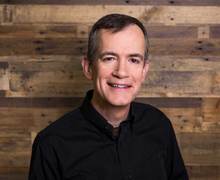Interview with David Stewart
Improving protections against speculative execution side channel

David Stewart will give a talk about Improving protections against speculative execution side channel at FOSDEM 2020.
Q: Could you briefly introduce yourself?
I’m a software engineering manager at Intel, helping the open source community work on issues such as speculative execution side channels and the like. I’ve been working on operating systems since the 1980s and Linux specifically since the early 2000s.
Q: What will your talk be about, exactly? Why this topic?
Speculative execution side channels present new challenges to developers so that they can harden their code to make it less feasible for a possible malicious actor using these methods to leak secrets. This talk will introduce methods that developers can use for mitigation.
Q: What do you hope to accomplish by giving this talk? What do you expect?
I want to equip developers to understand whether their code needs to change to mitigate for speculative execution side channels and give them specific advice on whether they need to be concerned about them.
Q: How has our understanding of speculative execution side channel attacks changed over the years?
The world now has a lot more awareness of this topic. I spoke with an Intel colleague recently who said their non-technical elderly parent asked if they needed to be worried about this with their computers. However, I don’t think most developers have thought about how these issues affect their code.
Q: 2020 marks the 20th anniversary of (F)OSDEM. What contributions has FOSDEM made to the advancement of FOSS, or how did you in particular benefit from FOSDEM?
Over the years, I have had a number of colleagues who have attended FOSDEM and told me about what a great community it is for open source developers to gather, share their wisdom and grow. Since this is my first time attending, I really look forward to connecting with friends who will be attending and learning first hand about the FOSDEM experience.

Creative Commons License
This interview is licensed under a Creative Commons Attribution 2.0 Belgium License.